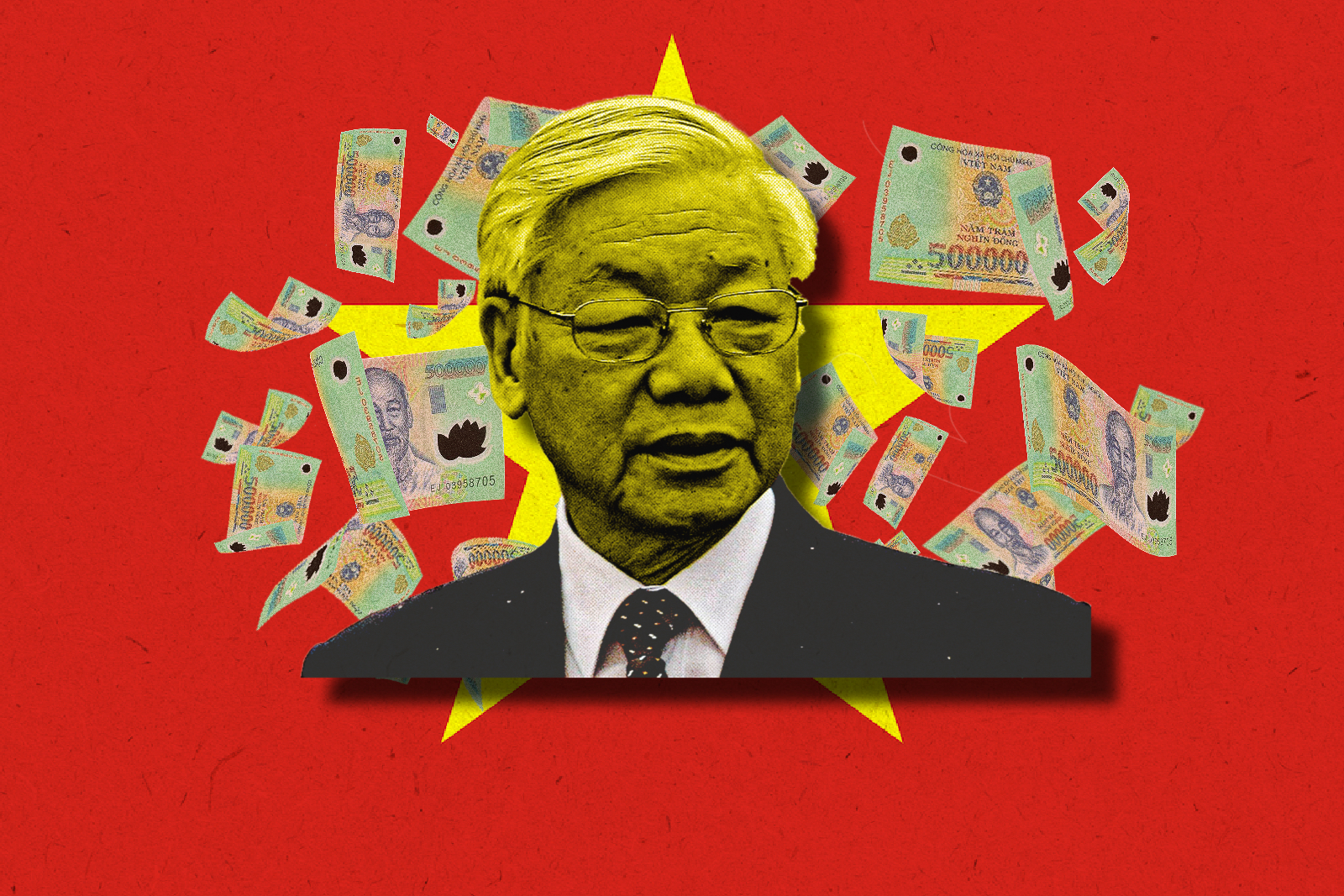
Hanoi Cleans House During Lunar New Year
This year’s Tet offered little revelry, nor any red envelopes, or ‘lucky money,’ for top-ranking party officials in Hanoi. The anti-corruption campaign led by Nguyen Phu Trong, the Communist Party’s General Secretary, has cast an ever-widening net with more high-ranking officials targeted.
The Lunar New Year is normally a time for family-packed offerings, incense, sticky rice, forgiven grievances, house cleaning, and the exchanges of red envelopes stuffed with dong bills, Vietnam’s currency. All these preparations are intended to set the stage for attracting as much luck and good fortune as possible in the upcoming year. Nguyen Phu Trong’s anti-corruption campaign has a similar purpose, bringing about the necessary change to create a solid foundation for Vietnam’s economic growth in the coming years.
Two years ago, the Communist Party of Vietnam (CPV) elected Trong to a rare third term.
While a few Western media observers are dismayed about the news of the recent shake-ups of Trong’s anti-corruption campaign, insiders believe that this action ensures political stability and continuity.
Despite a challenging global environment and continuing tensions between the United States and China, Vietnam’s economy has more than shown resilience, bolstered by robust domestic demand, export-orient manufacturing, and unprecedented private sector growth.
As corruption remains a considerable challenge for many countries, there are mixed findings about the impact on foreign direct investments. According to a study in Cogent Economics and Finance, some scholars found that higher corruption can harm FDI since investors incur higher costs because of project inefficiencies and the lack of transparency.
On the other hand, other studies support the idea that corruption can increase FDI because foreign investors can easily slide through the often oppressive bureaucracy to avoid rules and regulations. Also, combatting corruption in Asia Pacific countries is difficult, expensive, and arduous. Nevertheless, Vietnam seems to be aiming high at rooting out powerful and well-connected party officials.
In a recent article in Nikkei Asia, the author mistakenly stated that the fired officials were technocrats, they are not and neither is Vietnam losing its appeal as a stable and safe business environment. What’s clear is that the Vietnamese public is growing more intolerant of graft since anti-corruption steering committees are now found in every city and province. While other policy experts only speculate that the nation’s political turbulence will result in investor erosion of confidence, the fact belie that effect on the market.
The author also failed to mention that during the height of COVID-19, Vietnamese citizens displayed confidence in the government’s actions in combatting the pandemic.
“The Vietnamese experience has demonstrated to the world that public trust and confidence underpin success in government responses,” says Caitlin Wiese, the former UNDP Resident Representative in Vietnam.
Open for business and transparent
Trong’s anti-graft campaign arrives just as Southeast Asia’s fastest-growing economy seeks to bolster its appeal as a destination for foreign investment in the midst of trade tensions between the U.S. and China. The nation’s meteoric economy grew 8% in 2022.
In fact, all the evidence points upward for Vietnam since it has successfully managed to get manufacturers to relocate factory operations from China. The country has taken the lion’s share of the manufacturing trade away from China with an almost 360% increase in far-distance trade over the past six years and is branding itself as a global manufacturing hub.
“The growing disbursement by foreign investors in Vietnam amid a decline in Asia shows that investors have confidence in its business environment and stability,” claims Nguyen Quoc Viet, Deputy head of the Vietnam Institute for Economics and Policy Research.
The International Monetary Fund forecasts that emerging markets will grow by more than twice the speed of developed markets in 2023, and it is estimated that Asia alone will add $22 trillion in new wealth between 2022 and 2025.
The U.S. curbs on chip exports to China are the latest shakeup prompting companies to consider relocating some of their chip-making capabilities to nearby Vietnam.
As a result, Vietnam has emerged as an alternative production base to China for global semiconductor makers. The country has invested billions of dollars in investment to set up research and education centers attracting major chipmakers like Samsung and others.
Ted Osius, former U.S. Ambassador to Vietnam and now the president and CEO of US-ASEAN Business Council, in a recent opinion piece in The Hill, declared “that these recent departures were carefully designed to be neither punishment for forging closing ties to the West nor for promoting reforms within Vietnam. Instead, the punishments were intended to cultivate better accountability within Vietnam’s Communist Party.”
Even business mogul Li Ka-shing has invested billions in Vietnam’s infrastructure in the past year. This commitment, along with December’s Vietnam-Index rise to 1,080 points, the sharpest seen over the last eight months confirms the public’s trust in the political leadership and the country’s stability. Despite the prosecution of some high-ranking officials in the financial sector, investors’ confidence was not interrupted.
It’s not surprising that the Vietnamese in their Lunar New Year have adopted the cat as their zodiac symbol since it is especially popular among farmers, who view the animal as a friend to protect their crops from rats. This bodes well for Vietnam’s Communist Party leadership since it raises hopes for putting the past behind and ushering in new possibilities.
